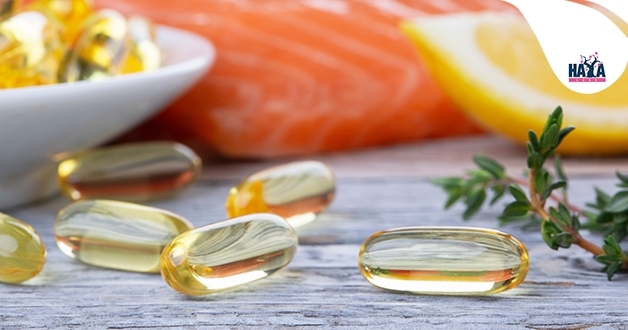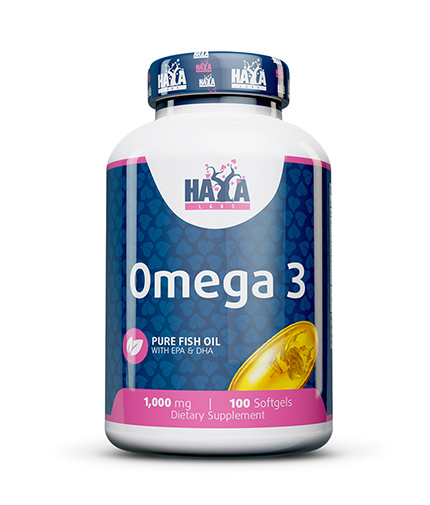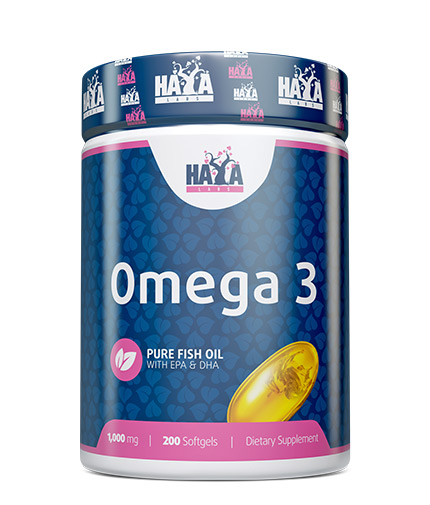
The myth about Omega 3 and Omega 6 fatty acids
0
1778
The companies that produce and offer these products emphasize that Omega 3 and Omega 6 are extremely healthy and beneficial for the human body. The truth is that Omega 3 and 6 are important nutrients, but their consumption in large quantities, especially in the form of concentrated oils and oils, poses a danger to human health.
What are the essential fatty acids?
Only plants can create both types of polyunsaturated fats called essential fatty acids Omega 3 and Omega 6. They are called indispensable because the organism cannot reproduce them and must get them through the food. All other fatty acids can be synthesized by humans.
There are 3 main types of Omega 3 fatty acids:
• alpha-linolenic acid (ALA), which is mainly found in plants;
• eicosapentaenoic acid (EPC);
• docosahexaenoic acid (DHA), which is found mainly in fish and in lesser quantities in eggs and seaweed.
In a healthy organism, a person converts ALK into EPC and DHA. The two main Omega 6 fat consumed by humans are linoleic and gamma-linolenic acid.
What are Omega 3 and Omega 6 useful for?
Essential fatty acids are vital for the human body:
• Part of the phospholipids of all cell membranes;
• Participate in the transport and oxidation of cholesterol;
• Participate in the formation of small but powerful hormones known as eicosanoids;
• Participate in the control of inflammatory processes;
• Maintain hormonal balance, proper functioning of the brain and nervous system.
When and how Omega 3 and Omega 6 can harm health?
Consuming large amounts of Omega 3 and Omega 6 is the cause of many diseases. The normal dose of Omega 6 required to maintain optimal health should be between 1 and 4% of the body's total calories.
The normal dose of Omega 3 should also be 1 to 4% or slightly larger. In this ideal ratio, Omega 3 and Omega 6 are normally circulating in the human body. In larger quantities, they can cause various problems such as cardiovascular and immune system diseases, obesity and cancer.
The daily intake of cold-pressed oils and refined oils most often exceeds these amounts.
The fears of most nutritionists and doctors are that most people fail to transform Omega 3 into DHA fat that is very beneficial to the body. The most common reason for this is the higher intake of Omega 6 than Omega 3. The solution is to consume Omega 3 in slightly larger or equal amounts with Omega 6, taken from natural herbal foods such as leafy vegetables, hemp, and linen.
Omega 3 and Omega 6 fatty acids can damage the cardiovascular system.
Companies producing concentrated oils and oils rich in Omega 3 and Omega 6 claim that their products help with cardiovascular problems. But accepted under this form, Omega 3 and 6 are oxidized quickly and form free radicals that damage the arteries in the body. This is a prerequisite for atherosclerosis.
A study with African monkeys found that replacing saturated fats with monounsaturated (such as cold-pressed olive oil) does not represent any protection for atherosclerosis. High fat in the diet (especially in olives and oils) causes significant increases in plasma triglycerides and blood clotting levels.
read more
Omega 3 and Omega 6 fatty acids can lower immunity.
Both fat types, Omega 3 and Omega 6, taken in larger doses, suppress immune cells that are responsible for protection from viruses, bacteria, parasites, and cancer cells.
Omega 3 and Omega 6 can be a major cause of obesity.
High-fat content in food is a prerequisite and cause of obesity. The human organism has the function to stock up nutrients to use them in case of need. That is, the fat we eat is the first stock that carries the body or, in other words, the fat we eat is the fat we carry. Recently, it has been popularized that Omega 3 and Omega 6 fatty acids help to lose weight.
Omega 3 and Omega 6 fatty acids can cause cancer.
Research for cancer has shown that taking animal and vegetable fats in larger quantities increases the risk of developing tumor cells and significantly accelerates metastasis in cancer patients. In another experiment at the Cancer Institute, unrefined Chinese rape, peanuts, soybean, linseed and linoleic acid were subjected to heat treatment. The results show that all products have carcinogenic substances that are a prerequisite for cancer.
How do we consume Omega 3 and Omega 6 fatty acids to be useful to the body?
All types of fats - replaceable and irreplaceable, are very useful, but they must be taken from natural sources and in the right quantities.
Omega 3 and Omega 6 fatty acids can be found in natural form in plant foods.
Rich sources of Omega 3 are purée, spinach, lettuce, cauliflower, flax, hemp, walnuts, and others. Rich sources of Omega 6 are safflower, sunflower, hemp, flax, walnuts, pumpkin and sesame seeds. But even in this natural plant form, Omega 3 and Omega 6 fatty acids, taken as seeds or nuts, should not exceed 30-40 grams of daily intake.
Most people consume artificially-derived fats (such as cold-pressed oils) in quantities that significantly exceed normal doses that are appropriate for the human body.
In some cases, it is necessary to take minimal amounts of cold-pressed oils or other oils, containing Omega 3 and its derivatives EPC and DHA. They are taken not as a food, but as a medication, in addition to nutrition.
It is known that some fish contain large amounts of Omega 3 fatty acids under the easily digestible form of EPC and DHA. But the fat in the heat treated fish becomes a carcinogen. Thus fat turns from beneficial into harmful. In addition, there is a danger of having a high percentage of mercury in the fish because today the seas and oceans are heavily polluted.
Tips:
• Stop all animal products - meat, fish, eggs, dairy products for a period of time; all types of oils and oils - olive oil, sesame, pumpkin, sunflower, fish, and others; as well as all kinds of refined semi-finished products such as waffles, pasta and others.
• Reduce the consumption of the following high-fat foods: seeds, nuts, olives, avocados, and others. Of seeds and nuts, we recommend ground linseed (up to 1 tablespoon), hemp (up to 20 grams), seed (up to 30 grams).
• Increase the intake of fresh fruits and green leafy vegetables.
• Let your diet include: cereal gluten-free foods such as millet, buckwheat, cinnamon, rice, corn and amaranth, and some beans - chickpeas, lentils, beans, peas.






